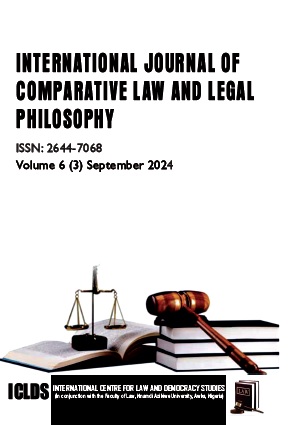GUIDING PRINCIPLES ON THE ROLE OF A LEGAL PRACTITIONER IN THE FORMATION OF CONTRACT- A CONTEMPORARY OVERVIEW
Keywords:
Legal Practitioner, Role, Guiding Principles, Formation of ContractAbstract
It is hornbook law that formation of contract is the exclusive business of parties to the contract. Not even the courts can make contract for the parties. Coincidentally, every agreement does not result to a valid or enforceable contract as some of the essential ingredients of a contract may be missing. Where either the offeror or offeree or both parties retain the services of lawyers in the formation of a contract, the expectation is elevated although the outstanding concerns remain what roles the lawyers should play and what principles should guide them. To answer these questions, the paper deployed the doctrinal research method to analyse judicial decisions and requisite statutory provisions that outline the meaning and ingredients of a contract plus the role of a lawyer engaged in the formation of a contract. The paper found that the five ingredients of a contract are offer, acceptance, consideration, intention to create legal relationship and capacity to contract notwithstanding the countless circumstances where mere invitations to treat which do not qualify as contract were presented to Court for adjudication. The paper further established that lawyers are legally obligated to diligently ensure that essential ingredients necessary for the formation of a valid contract are satisfied failing which they may be sued by their clients for professional negligence. It was therefore recommended that lawyers should master the rudiments of contract law in order to successfully guide their clients to enter into valid contracts as well as reduce rampant filing of frivolous cases including appeals.

